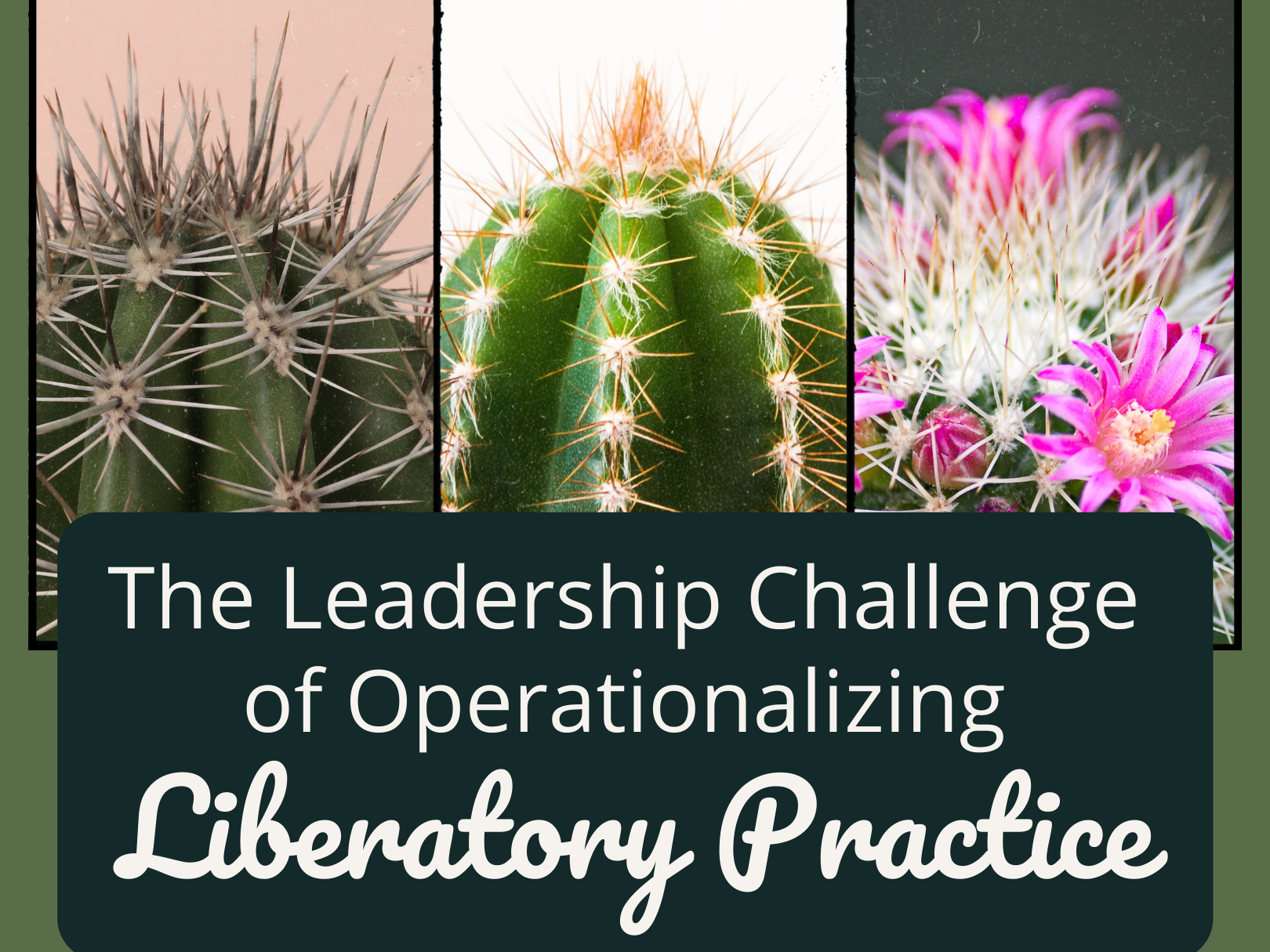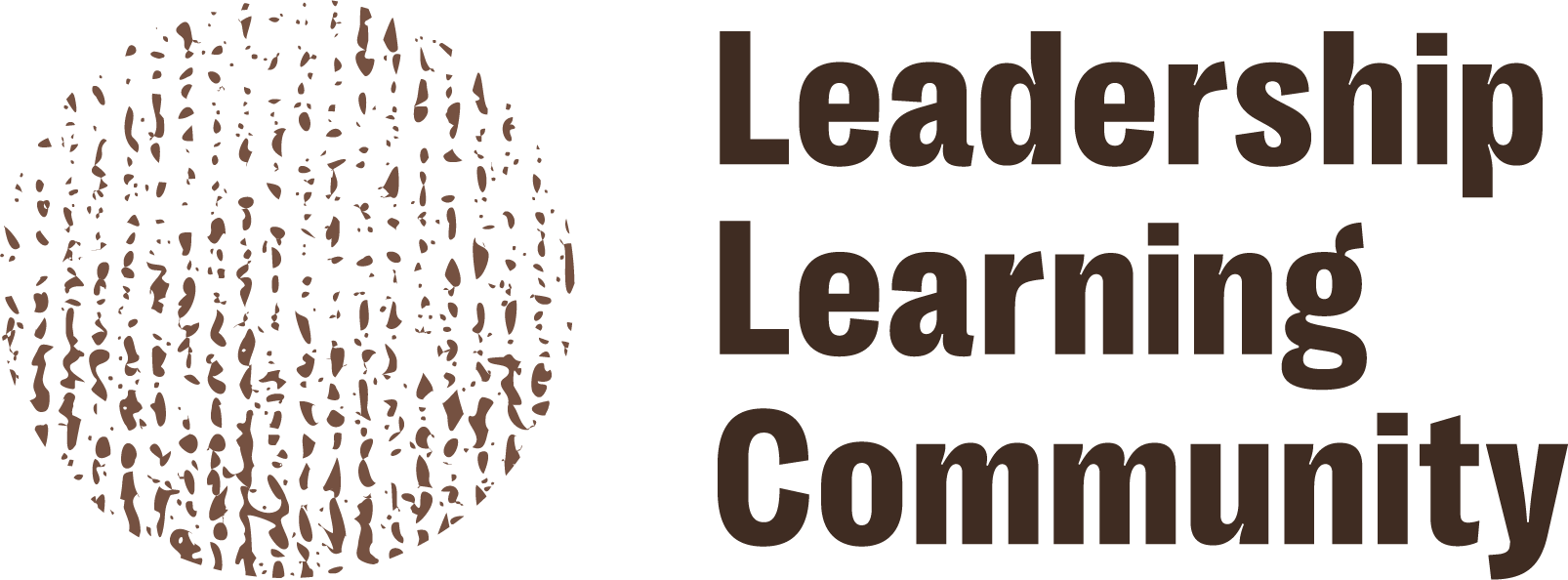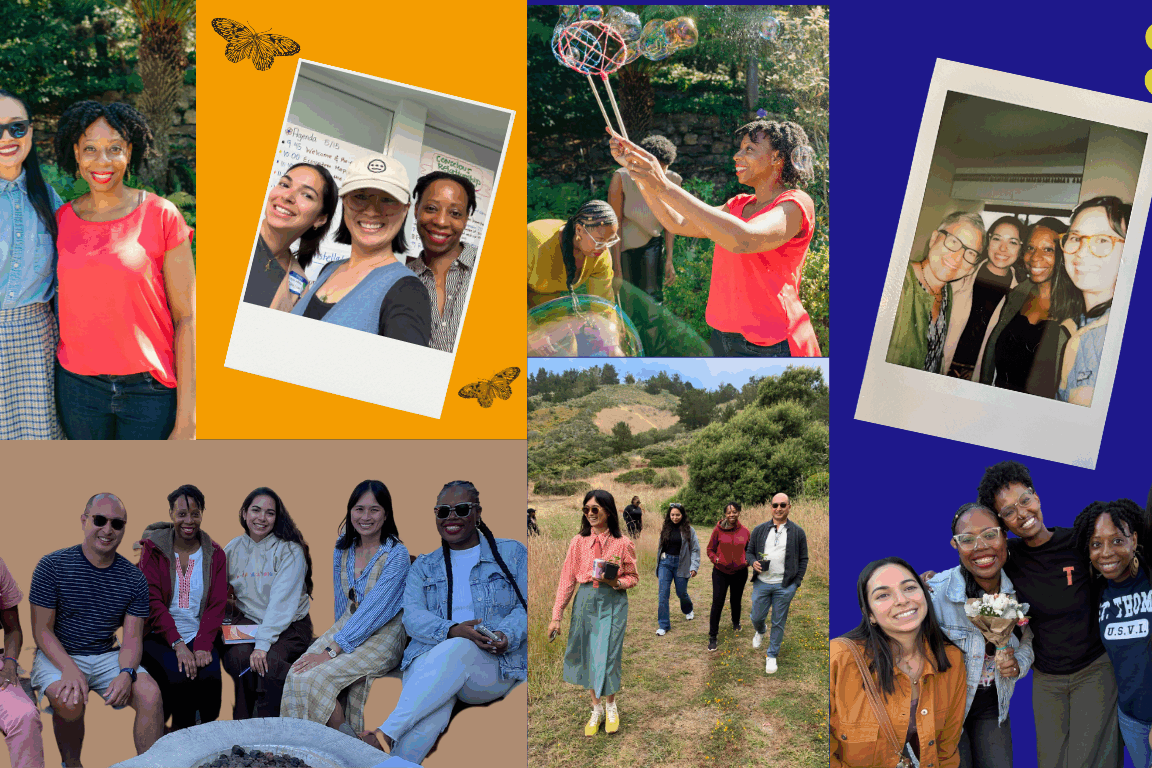The Leadership Challenge of Operationalizing Liberatory Practice

2020 initiated a radical shift in the Leadership Learning Community’s (LLC) thinking about leadership. Prior to 2020, centering equity was a cornerstone of our strategy. After the emergence of COVID and the post George Floyd rise in racial justice consciousness, we asked ourselves “what are we really seeking?” and determined we were seeking liberation. We haven’t discarded equity, but our thinking has evolved to view equity as necessary but insufficient. However, rather than seeing equity as a problem, we’ve embraced it as a path toward liberation. In the relay race of justice, equity passes the torch forward, toward liberation. Our definition of liberation is still evolving, we also know that it is different for everyone, but when we say liberation, we mean power, joy, and thriving for all people.
This recentering on liberation has informed the way we engage in all of our work, including our facilitation. For the last two and a half years the LLC has been facilitating two sets of regular meetings with nonprofit leaders. A monthly BIPOC Affinity group, for BIPOC people in the leadership development ecosystem, and a bimonthly racially mixed Executive Director’s Learning Circle. While the two spaces have very different participant bases, they share several key things in common: both spaces emerged in direct response to post-COVID needs; each evolved to have lightly structured and liberatory facilitation models; and each have illuminated/revealed a common set of needs, desires, and concerns non-profit leaders are holding in the current moment. In both groups, leaders articulated a deep desire to embrace equitable and liberatory values and acknowledged challenging gaps in their knowledge about how to align those values with practice.
Many of the leaders LLC holds space for know they need something different and are also eagerly seeking to integrate a liberatory lens into their work, even if they use different language. The challenge here is that, because they’ve never seen it in practice, for many leaders there is the fear that values-aligned practice isn’t actually possible and worry that the attempt is naive, given the pressures and restrictions of the system we live in. I know the liberatory future I am seeking isn’t guaranteed, but I do hope it is possible, and I think this possibility deserves the opportunity to become reality. Imagine the consequences if leaders ultimately conclude that liberatory practice is necessary but not possible.
This lack of knowledge about how to operationalize liberatory values exists because we’ve never actually experienced it, so we are almost imagining it into being. Given how different this approach is from how most of us were trained to function as leaders, this shift requires us to adopt a prefigurative approach to the work. These efforts to prefigure liberatory leadership models will require a significant and committed investment of resources and support, this is especially true for BIPOC leaders who bear the burden of additional expectations and obligations.
Too often the work of adopting liberatory practices feels difficult because leaders erroneously assume that this work is an individual activity and the weight of this heavy-lift reflects some personal leadership failure. However, the shift to liberatory practice isn’t just the responsibility of individual leaders; instead, all of us in this ecosystem, leadership practitioners, capacity builders, and funders bear responsibility for this work.
There are many ways we support leaders and collectives experimenting with liberatory leadership, two useful forms of assistance include:
- Supports for Experimentation: In this case, I mean spaces, resources, and allowances for experimentation.
- Spaces: Leaders need dedicated spaces and support to engage in prefigurative practice, spaces that offer leaders the freedom to explore and experiment with practices that align with how they think things should be even when that’s not quite how things are right now. These spaces give leaders the opportunity to develop and share new models, stories, case studies, and examples of liberatory leadership in action. Examples of these spaces include LLC’s BIPOC Affinity Group and the Praxis Cohort run by The Center for Third World Organizing, in partnership with the Liberatory Leadership Partnership. The Praxis Cohort is a program for emerging black-led organizations pursuing values-driven liberatory organizational structures.
- Resources: Leaders in social justice organizations need additional financial resources to take on liberatory values-aligned work in addition to their core mission work. The staff time, additional tools, and consultant support this new work requires are all on top of an organization’s already established work. Without additional resources leaders won’t be able to simultaneously continue with their core work, and try on new liberatory practices without adding strain and overburdening the organization.
- Allowances: If you penalize failure, you penalize innovation. We need to allow for failure because not every experiment works. To innovate, leaders need the freedom to try, observe, toss out, refine, and retry experiments to get to something new that works.
- Resources for Restoration and Healing: We have to recognize that the experiences of leaders don’t exist in a vacuum. Leaders are learning about and attempting to practice leadership in new ways, in a new world, while simultaneously hurting and grieving. Many leaders are also holding high levels of individual, communal, and ancestral trauma, fear, burnout, and stress. Their internal resources are not inexhaustible and must be renewed if they are to continue.
LLC is excited to continue exploring the idea of liberatory leadership. We will continue to share what we are learning as well as ways the leadership ecosystem can support liberatory work.
Related Posts
July 21, 2025
The opposite of anxiety is trust.
June 21, 2025




